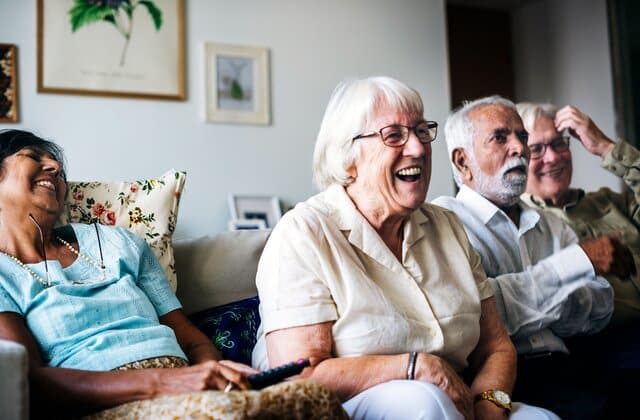Social isolation among seniors is more common than people realize. As the senior population in Canada continues to climb, the incidence of solitude and seclusion for older adults will only increase. A lack of social activity can be debilitating and exacerbate feelings of loneliness. Social isolation can also lead to other health issues like anxiety, depression, cognitive decline, and poor physical condition.
Suppose you have an elderly parent, relative, or friend that may be drifting toward reclusiveness. In that case, seeking assistance as soon as possible is recommended to correct the issue. Home caregivers can provide companionship and support while focusing on improved overall health.
Signs and Symptoms of Social Isolation
Being aware and looking for warning signs that your loved one may be heading for social seclusion is a good idea.
Some of the signs to keep an eye out for might be:
- Neglecting housekeeping duties
- No attempt to keep up with personal hygiene
- Noticeable weight loss or gain, poor eating habits
- Changes in sleeping patterns
- A decline in cognitive abilities and mental sharpness
- Apathetic attitude
- Sedentary lifestyle
- Avoiding social events, no interest in social interaction
- Letting hobbies and usual activities go by the wayside
All of these symptoms may indicate a more severe problem at hand. With the proper support and assistance, our senior loved ones can get back on track with a healthy lifestyle.
Helping Seniors Conquer Social Isolation
There are many approaches to assisting seniors on the path to solitude and depression. Some helpful suggestions may include:
- Identifying the root issue
- Social meals
- Encourage vision and hearing exams
- Addressing incontinence
- Provide affection and support
- Get pets or plants
- Home caregivers
Identifying the Issue
Step one is identifying the problem. A family member typically begins to notice the signs of detachment, and once they are acknowledged, they can be resolved. Family caregivers can be of great help to seniors who are becoming withdrawn. Respite caregivers can provide support and backup for family caregivers, who can also be in danger of becoming socially isolated themselves without support and assistance.

Social Meals
One of the easiest and most practical ways to stay social is by enjoying a meal with family and friends. Everyone has to eat, so invite your senior loved one out for dinner or arrange a family get-together. It also helps to encourage them to share a meal with friends that live in the area.
Encourage Vision and Hearing Exams
Vision and hearing deterioration is a widespread occurrence as we get older. Vision or hearing impairment can make social interaction more complex and impossible if not addressed accordingly. Huge technological advancements have made hearing aid devices extremely effective and barely noticeable. Vision problems should also be taken care of as quickly as possible, as some eye problems associated with age, like macular degeneration, cause irreversible and permanent vision loss.
Incontinence
Another prevalent health issue for older adults is incontinence. For obvious reasons, incontinence problems can make seniors hesitant to go out and be social. This can be an embarrassing matter, making it awkward to ask for help. However, incontinence can be managed through education, medications, and therapies.
Affection and Support
Even something as simple as a hug or a compliment can go a long way in boosting confidence and self-esteem. Encouragement and affection reduce stress and anxiety and promote positivity and well-being.
Pets and Plants
Having something to care for can provide a sense of purpose and reduce feelings of social isolation. Studies on animal companionship have demonstrated the potential benefits of pet ownership, which can include:
- Reduced anxiety and depression
- Decreased loneliness
- Increased feelings of security
- Greater motivation and purpose
- Less need for medication
- Increased physical exercise
- More opportunities for social activity
Getting houseplants or gardening is a viable substitute for seniors who are allergic or uninterested in a pet.
Home Caregivers
If you have an elderly loved one that you may feel is heading for social isolation, home caregivers can provide help through a professional home care agency.
Home caregivers offer a variety of positive benefits for seniors struggling to find the motivation to be social. For one, it provides an additional companion to assist with daily tasks and activities or accompany social events. Home caregivers can also help with nutrition, exercise, and mental stimulation while offering physical and emotional support.
Resources:
Social isolation and loneliness in older people pose health risks



